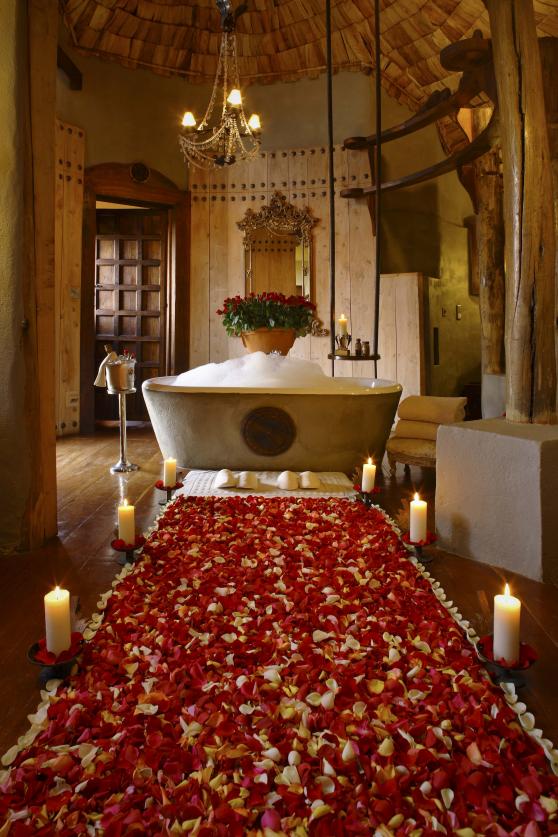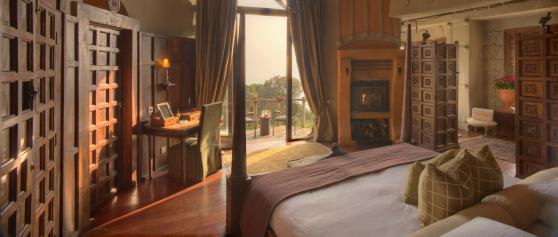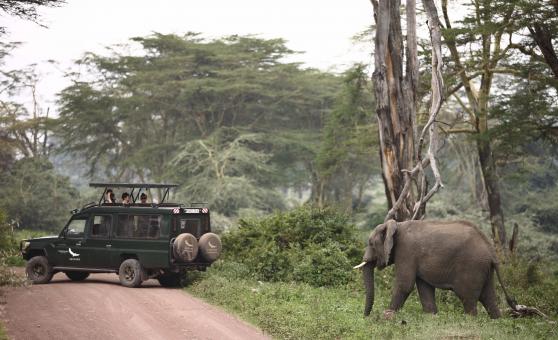If you’re planning on travelling to the Ngorongoro Conservation Area, we’ve put together some of the most important things you need to know about visiting Northern Tanzania before you go. Our team of safari experts are more than happy to answer any further questions you have in relation to lodges, transportation and safari planning or can craft a customised itinerary just for you.
Before you travel to the Ngorongoro Conservation Area
What to Expect in Ngorongoro Conservation Area?
Just a stone’s throw from the crater floor, the Ngorongoro Crater Lodge is the ideal destination to base yourself while exploring the Ngorongoro Conservation Area. The walls of this scenic wonder act as a natural enclosure for around 30,000 resident species, including large numbers of hippos, flamingos and the “Big Five”. Aside from its abundance of wildlife, the Ngorongoro Crater is also renowned for its staggering beauty and has been designated as one of Africa’s Seven Natural Wonders.
Passport Requirements:
â—¦All travellers require a valid passport to travel to Tanzania. Keep in mind that your passport must be valid for at least 6 months from your travel date.
â—¦In order to enter Tanzania, you will need to have at least two blank passport pages for each country that you plan on visiting during your itinerary to allow for entry and exit stamps.
â—¦Some passport holders may require a visa before departing for Tanzania, so check with your local consulate before travel about current visa requirements.
Health Vaccinations and Precautions:
â—¦It’s essential that you make an appointment to see your GP well before departing for Tanzania to chat with them about any necessary vaccinations or health precautions. During this appointment, you can also organiseany prescription medications you may need for the duration of your trip.
â—¦Travellers entering Tanzania from countries that are affected by yellow feverwill need to show proof of having a yellow fever vaccine at least 10 days prior to arrival. This is a mandatory government requirement and you may be refused entry if you don’t show a yellow fever certificate on arrival.
â—¦Some parts of Tanzania are impacted by malaria, so chat with your doctor about anti-malaria precautions. There are various options available, all of which have different potential side effects, so decide what is the best option for your individual health requirements.
â—¦In the highly unlikely case of being bitten by wildlife during your time in Tanzania, your doctor may also recommend a rabies vaccination. While these vaccines can be expensive, remember that the disease can be fatal if left untreated.
Buy Travel Insurance:
â—¦We strongly recommended that you buy a comprehensive travel insurance policy to cover you in case of unexpected situations that can arise while travelling. Each policyis different, so carefully check what is covered and ensure it includes emergency medical costs (including evacuation).
What to Pack and Bring?
â—¦Casual, comfortable and quick-dry clothing
â—¦Neutral-coloured clothing in beige, khaki or green (dark clothing attracts mosquitoes and tsetse flies)
â—¦Long sleeve shirts to protect against the sun
â—¦Cotton shorts, safari trousers and/or lightweight pants
â—¦A sweater for chilly early mornings and evenings
â—¦A waterproof jacket
â—¦Comfortable shoes or boots with a good grip
â—¦Sunscreen, sunglasses and a broad-rimmed hat
â—¦Insect repellent
â—¦Lip balm, moisturiser and eye drops
â—¦Camera and binoculars
â—¦AC/DC converter for your electronic devices
â—¦Medication (including malaria, anti-allergies and pain killers)
â—¦First-aid kit with bandages and antiseptic cream
The Ngorongoro Climate
The Ngorongoro Conservation Area usually experiences a moderate year-round climate that’s ideal for being out on safari, with warmdays that are interspersed with cool mornings and nights. Temperatures generally range from 15ºC and 26ºC, although it can rise above 30ºC during the warmer months. November sees the arrival of the short rains that won’t affect outdoor activities too much, with heavier (and longer) downpours expected from March to May.
June to October – Dry season
November and March – Short rains
March to May – Long rains
Currency:
The official currency in Tanzania is the Tanzanian Shilling (TZS). At the time of writing, 1 USD equals around 2,000 TZS. Banks and foreign exchange counters can be found at all of Tanzania’s international airports, as well as in most major towns and cities. Although U.S. dollars are generally accepted throughout the Ngorongoro Conservation Area at lodges and for tipping guides, it’s recommended that you carry small denominations or some Tanzanian Shillings for minor purchases.
Banks generally operate Monday to Friday (8:30 am to 12:30 pm) and Saturdays until 1:00 pm. Mostmajor credit cards are accepted at camps and lodges throughout the Ngorongoro region but you can expect to incur a surcharge of between 3 and 5% of the purchase price.

 1-321-766-6821 |
1-321-766-6821 | 





